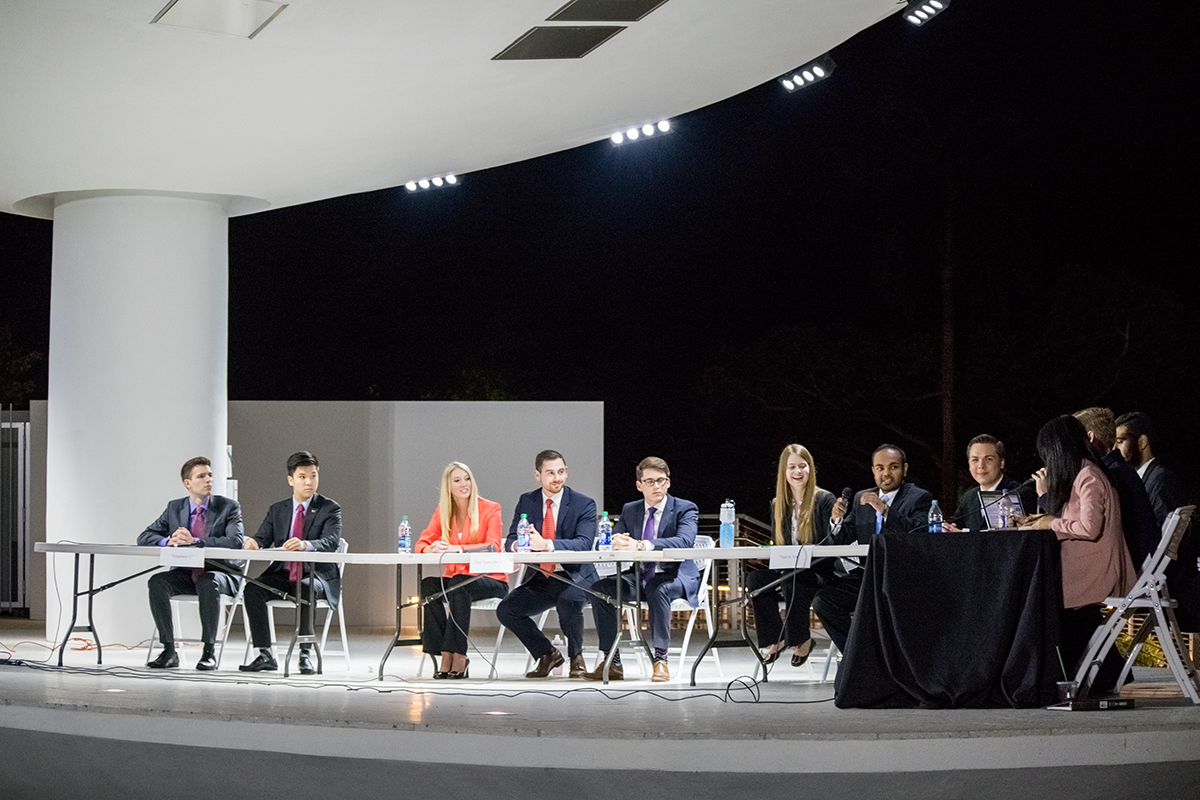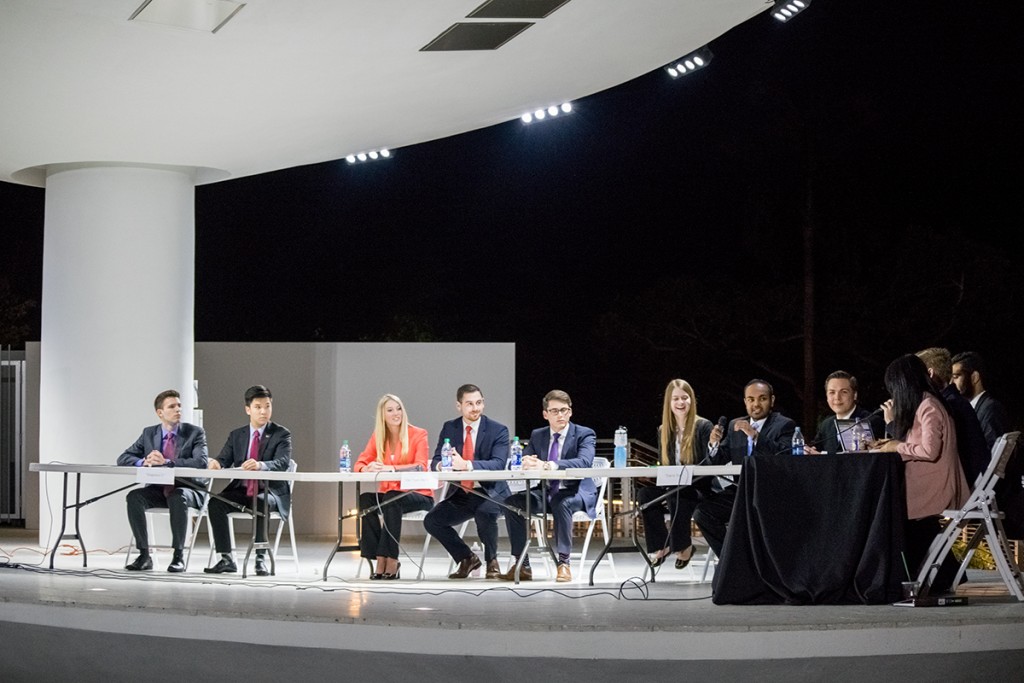

The candidates running for Student Government debated the merits of recent SG actions and inactions as part of the election’s sole debate Wednesday night on the Lakeside Patio Stage.
The “Empower U” and “One Team, One U” platforms criticized the current Student Government, citing lack of transparency and detachment from students. Presidential candidate Jacob Rudolph and vice presidential candidate Austin Eng of “Empower U” used nap pods as an example of the university spending money without letting students know.
“Eighteen thousand dollars was spent on nap pods. There is a difference in spending money for decoration and for [initiatives] that will help,” Rudolph said. “We could have focused our financial resource on improving our bystander intervention [or] on ‘Canes Care for ‘Canes. There is so much untapped potential.”
“One Team, One U,” consisting of Jason Goldenberg, Emeline Savidge and Andrew Weinstock who are running for president, vice president and treasurer respectively, echoed that sentiment. They mentioned that less than 30 percent of the student body voted for last year’s 2015 elections, saying that Student Government has not done enough to reach more students.
“We need to end the Student Government political machine that uses tactics that are misleading. It says that our initiatives are great, such as nap pods. Why don’t we use $18,000 for safety?” Weinstock said. “Let’s put money where it is useful. Student Government has been lying to 10,000 students for years now. Seventy percent of students are disconnected. It’s time for change.”
Ishtpreet Singh, the current vice president of Student Government who campaigned for the nap pods, said that funds from the student activities fee were not used to purchase the nap pods.
The debate was moderated by Patrick Quinlan, president of the Pen and Sword Society (a non-competitive debating student organization) and Jackie Yang, the opinion editor for The Miami Hurricane. They asked questions and candidates from “Empower U, One Team,” “One U” and “True to You” had three minutes to answer.
The “True to You” candidates, consisting of Vikesh Patel, Ashley Pittaluga and Morgan Owens running for president, vice president and treasurer respectively, have plenty of Student Government experience. Patel and Pittaluga have been involved with Student Government since their freshman year. Through their experience, they identified additional academic needs.
“Student Government knows what needs to be done. We are not running because we want to be on executive; we run because want to help students,” Owens said. “Our initiatives, such as early class syllabi, will make a difference. Students can get their syllabi earlier, making it easier.”
Pittaluga, who has been involved in the Freshman Leadership Council (FLC) since her freshman year and is now the council’s project coordinator, mentioned how her experience can benefit the vice president position, which tries to make freshmen students better leaders.
“We want to prepare our own Canes here for the outside world. We need to focus on the students now,” Pittaluga said. “We have a comprehensive plan to bring all students of campus together. We want to bring an unforgettable four years for the students in UM.”
“One Team, One U” also mentioned that their lack of involvement in Student Government, which they call a broken system, works to their advantage.
“I have not been a part of Student Government before. I have not been a part of the broken system that is currently in place,” Goldenberg said. “I am part of an outside group that sees change that needs to be made and I know how to get it done … We will be fully transparent. We have brought 13 new ideas that have never been brought before.”
Some of their ideas include changing the takeout system, expanding the operating times of the Safe Ride program and creating a town hall open forum on the Rock, where the campus community can voice whatever concern they have.
“Empower U” hopes to improve activism on the campus, modify the grading system to make an A+ equate to a 4.3 G.P.A., improve diversity and create a minor in leadership.
“Our work with administration is to foster an open dialogue. If they say no, then the student body must decide if these issues are worth fighting for,” Rudolph said. “When the Black Lives Matter movement hit us, student leaders galvanized those who are not black to join in the marches. These are issues worth fighting for. Frenk wants to get 100 more faculty members … Only 4 percent of our faculty is black, so why not recruit more that are black?”






